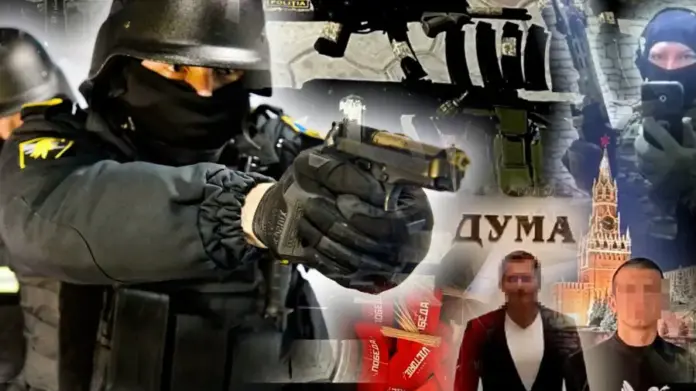Two men — a citizen of Russia and another of Belarus — allegedly trained Moldovan nationals in a camp near the village of Loznica, Serbia, in preparation for destabilization efforts around Moldova’s parliamentary elections, according to the Montenegrin outlet Vijesti.
The Russian citizen, Sergey Andreenkov, is reportedly a member of Russia’s ruling United Russia party and serves as an advisor within the Russian occupation administration in Ukraine’s Kharkiv region, IPN reports.
According to local security services cited by Vijesti, the 41-year-old Andreenkov entered Montenegro twice since early August, accompanied by Aliaksandr Hontarau, a 54-year-old citizen of Belarus. The two reportedly traveled in and out of Montenegro because Russian and Belarusian citizens cannot remain in Serbia for more than 30 consecutive days.
Serbian security expert Ivan Miletic told Vijesti that the men are linked to Nenad Popojic, a former Serbian government official involved in Russian–Serbian business networks.
“I’ve heard he owns an arms factory in Russia, mainly producing drones. You can’t open a weapons factory there without ties to the military system — especially the GRU. It’s clear which network this operation comes from. The camp itself closely resembles those we saw in the early 1990s,” Miletic said.
The two men reportedly trained over 150 people between July and September in identifying combat targets and handling firearms. The purpose, investigators say, was to prepare participants to disrupt Moldova’s elections if results proved “unfavorable” to pro-Russian parties.
Ahead of the September 28 vote, Moldovan law enforcement conducted multiple raids and detained 74 individuals suspected of having been trained in Serbia under the supervision of Russian intelligence operatives, with the goal of staging violence and mass unrest during and after the elections.
Gordana Andric, from the Balkan Investigative Reporting Network (BIRN), noted that similar camps have existed for years:
“Groups of Moldovan and Romanian citizens have been brought here for various kinds of training — physical fighting, breaking police cordons, using batons, even handling firearms. These are not the first such camps organized in Serbia.”
Victor Furtuna, head of Moldova’s Prosecutor’s Office for Combating Organized Crime (PCCOCS), said the investigation involves 111 individuals in total. Participants were reportedly paid about €400 each for training in police resistance tactics, rubber baton use, and firearm handling. Raids uncovered weapons, ammunition, tents, and camouflage clothing.
Andric added that some trainees were even paid in cryptocurrency.
Days later, Serbia’s Ministry of Interior confirmed the arrest of two men accused of training up to 170 Moldovan and Romanian citizens near Loznica. Authorities seized laptops, mobile phones, radio-frequency detection devices, and a handgun, and opened a criminal case for illegal weapons possession and trafficking.
Serbian Foreign Minister Marko Djuric condemned the operation, stressing that Serbia supports Moldova and will not allow its territory to be used for subversive activities:
“Moldova supports Serbia’s territorial integrity, and Serbia supports Moldova’s. Our Moldovan friends can be confident that such groups have been stopped twice — now and last year. Serbia will continue to ensure its territory is not a base for hostile actions against other European countries.”
On election day, Moldovan police detained three more suspects, including two brothers from the Transnistrian security forces, for allegedly preparing post-election unrest, according to IPN.
This investigation was produced in partnership with ORF Austria, the Austrian national public broadcaster.


